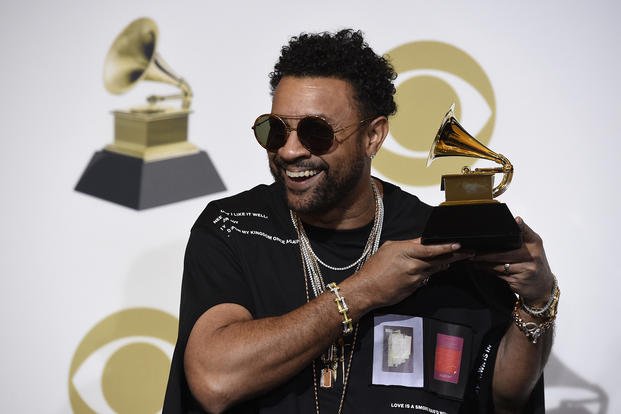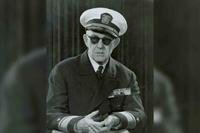One might think that making fun of a drill instructor would lead to a severely shortened life span, but for reggae rapper, songwriter and erstwhile Marine Corps artilleryman Shaggy, it led to a career in the music industry.
Long before he ever considered joining the Marines, Shaggy (born Orville Richard Burrell) was a young kid being raised by his grandmother in Jamaica, who had eclectic musical tastes. Listening to the radio and playing with her records was young Shaggy's earliest forays into his love for music, and it was during a performance by Jamaican dance-hall DJ King Yellowman that he decided he would become a performer himself.
When he finally broke into the music industry with "Oh Carolina" at 25 years old in 1993, Shaggy had developed a signature voice and style -- one he perfected not from his records and dance-hall performances but while serving in the Marines, as he recalled in a recent video posted to social media juggernaut TikTok.
"I got this voice by mocking drill instructors in the military," he recalled in a video posted last week. "'Cause in the Marines, the drill instructors would go, 'Yeah, boy, drop and give it 20; let's go, boy' and I would mock him as a form of joking because it motivated, you know, your platoon.
"I just sang that song in that voice because it sounded cool, and all of a sudden, 'Oh Carolina' blew up, and I'm faced with this situation that I'm going to have to sing every song like that," he added.
Shaggy moved to New York City to live with his mother in 1986 at just 18 years old. It was there and then he began his music career. His song "Big Up" hit No. 1 on the New York reggae charts, but he was still unknown in the wider music world.
In 1988, he joined the Marine Corps' 5th Battalion, 10th Marine Regiment as a way to get out of New York's Flatbush neighborhood and find some stability. Like many service members, his enlistment led to a deployment. In 1990, he was sent to the Persian Gulf to support Operations Desert Shield and Desert Storm.
Shaggy would leave the Marines as a lance corporal after being demoted twice for unauthorized absences; he kept leaving his duty station to work on his music career in New York.
"The Marines [were] a good setup for everything I was about to encounter in life that I didn't," Shaggy told Billboard's web series "Growing Up."
He had no idea how right he was.

"Drill instructors used to put these voices on, ... and I just used to mimic them because they would call me out to sing cadences. Little did I know, that was actually vocal training because I was singing from my gut and running three miles."
It was this impromptu vocal training that would lead to 17 studio albums, 11 top-10 singles and 40 million albums sold.
After "Oh Carolina" came "Boombastic" and "In the Summertime." His 2000 album "Hot Shot," which included hit songs "It Wasn't Me," "Luv Me Luv Me" and "Angel," went diamond (at least 10 million sales) worldwide and platinum (one million sales or more) six times in the United States. King Yellowman, the dance-hall DJ who inspired his musical career, is now a close friend.
And Shaggy doesn't just attribute his distinctive singing voice to his time in the Marine Corps, but his work ethic as well.
"The military prepared me for that. So I would get up really early in the morning, I would work really, really late. And it's just that kind of discipline," he recalled in a 2020 interview. "People say you go to the military to learn to fire a gun; I went to the military to learn to balance my checkbook. That's what that taught me to do."
Keep Up With the Best in Military Entertainment
Whether you're looking for news and entertainment, thinking of joining the military or keeping up with military life and benefits, Military.com has you covered. Subscribe to the Military.com newsletter to have military news, updates and resources delivered straight to your inbox.

















